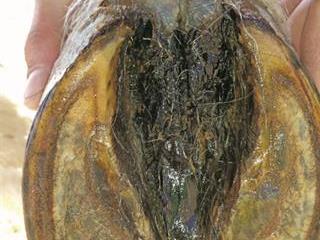Agriculture is becoming a bigger priority for President Thabo Mbeki. This was the general feeling of all parties who attended the Presidential Agricultural Working Group, which took place at Tuynhuys in Cape Town on 15 May.
Huge farming issues like biofuels, land reform, agricultural tariff policies and drought were on the discussions agenda. “All participants were of one mind that we must tackle the issues – we must be able to act in unison,” said Mbeki’s spokesperson Mukoni Ratshitanga. Corwyn Botha, president of the Agricultural Business Chamber, praised Mbeki’s commitment to agriculture.
“People need to know that this president is committed to agriculture – our previous presidents did not have these special meetings with agriculture.” This is the second year the working group has met. Mbeki originally said they would meet again one year after the previous meeting, but in fact four meetings have since taken place. Botha said the meeting was supposed to only be two hours, but Mbeki extended it to three.
The president then said a day should be allocated in the near future to discuss matters in even more detail. “No other sector receives a whole day of the president’s time,” Botha said. Paul van der Walt, president of TAU SA, said it seemed as though Mbeki has come to the realisation that the current plan for agriculture is not working. He believed Mbeki was becoming frustrated that outstanding problems had not been solved. Van der Walt explained that there were numerous role-players in agriculture, some political and others economic, and that the latter were far more important if one wanted to see agriculture grow.
Overall, he felt positive about the meeting. Motsepe Matlala, president of the National African Farmers’ Union, said: “For the first time the Department of Land Affairs is putting vehicles forward that will bring about the delivery of services.” Lourie Bosman, president of Agri SA, agreed with the other agricultural union presidents that this was the most positive working group yet. “The president was adamant that the commercial farming sector is needed in the country,” Bosman said excitedly. Issues were discussed in detail and one that stood out for Lourie was that of the biofuels issue. He emphasised the fact that government needs to look at the time scale when it comes to biofuels. An additional three million hectares of grain will be needed to fuel this project, and will have to be zoned correctly.
Drought-relief measures were also high on the agenda. Bosman said certain areas in South Africa have been in a state of drought for the last three years – “It’s difficult, because we do not have a long-term drought strategy.” The current crisis will have to be resolved on a macro scale, while a long-term strategy can be implemented. The revision of the strategic plan for agriculture, first adopted on 27 November, was one of the biggest discussion topics on the table. Bosman said especially the time scales of this plan needed to be revised.
On the agricultural budget, Bosman said it seems the government has realised that poverty cannot be lifted while South Africa has a poor agricultural economy. The proof would be in the proverbial pudding, and Bosman said he would be interested to see how the changes are implemented. On land reform, Bosman referred to the government’s new strategy to buy land and put proper support systems in place to help developing farmers achieve more stability. He said this will also give local role-players the opportunity to support these farmers and be supported themselves. – Susan Botes









